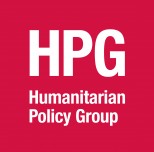Rural Damascus, Madaya. A joint ICRC, UN, Syrian Arab Red Crescent aid convoy entering Madaya. Photo: KRZYSIEK, Pawel/ICRC
Post your questions on Twitter via
#HumanitarianAccess
On 18 September 2017, the ICRC and the Humanitarian Policy Group (HPG) will convene a live-streamed panel at the Humanitarium gathering humanitarian agencies and researchers to identify current access challenges for international and local organizations. What strategies do agencies use to gain access? How can we better harness the experience of local organizations to improve access to people in need? The event offers insights from HPG's two-year research project on humanitarian access by local organizations entitled "Holding the keys: who gets access in times of conflict?" The conference is part of the ICRC's Conference Cycle on Generating respect for the law.
The event will be live-streamed on this page.
Background
Humanitarian access is crucial in situations of armed conflict where civilians are in need of assistance and protection. Yet, obtaining access is rarely straightforward. It can be denied or hampered by parties to a conflict for security or political reasons, or agencies themselves may delay or abandon attempts to deliver assistance out of concern for the safety of their staff and beneficiaries.
Much of the thinking and research on the issue of access tends to focus on security conditions and the safety of (primarily expatriate) aid workers. While some researchers concentrate on the legal framework that governs humanitarian assistance, others explore how aid is getting into some of the most challenging environments and how aid agencies monitor the effectiveness of the aid delivered. Many also focus on the use of humanitarian principles, and the degree to which they facilitate access in volatile environments.
However, there is a dearth of research on humanitarian access seen from the perspective of local organizations who often are the first responders in a crisis. Do they have a comparative advantage over international organizations in negotiating access and if so what is it based on?
Moderator
- Hugo Slim, Head of Policy and Humanitarian Diplomacy Division, ICRC
Panellists
- Eva Svoboda, Senior Research Fellow, HPG
- Claudia Meier, Project Manager, Global Public Policy Institute
- Iyad Agha, Deputy Country Director for Operations, Watan
- Marina Cherenkova, Co-Founder, Responsible Citizens
- Lars Peter Nissen, Director, ACAPS




